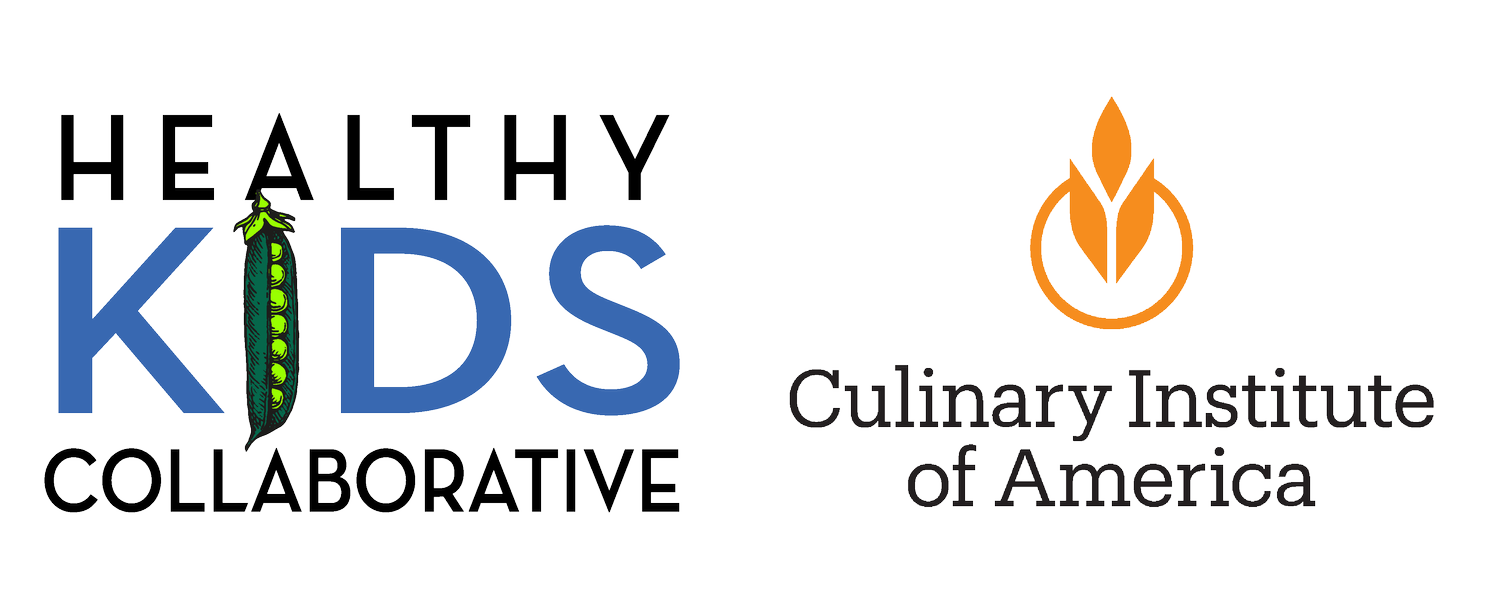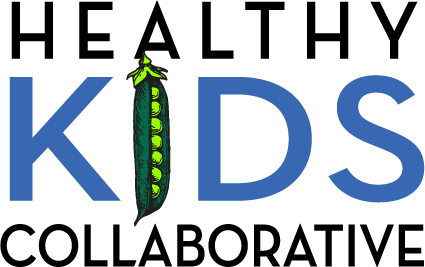CULINARY SKILLS TRAINING FOR SCHOOL NUTRITION PROFESSIONALS
Cooking for Healthy Kids is a joint educational project of The Culinary Institute of America (CIA) and the membership of the CIA's Healthy Kids Collaborative (HKC)—a network of thought-leading school nutrition professionals, chefs, suppliers, and other stakeholders—who have been working together to advance culinary-driven, healthy, flavorful foods for kids since its inception in 2015. Cooking for Healthy Kids was created to provide enhanced culinary training to school nutrition professionals across the country who serve school meals under the USDA program. This five-day training curriculum, based on the model created and implemented within the Indiana Department of Education by HKC Chair Catharine Powers, MS, RDN, LD of Culinary Nutrition Associates, LLC, will jumpstart the critical culinary education that school nutrition professionals need and serve as a model for a successful national program of culinary training and related professional development for the K-12 sector.
Training Goals & Approach
This training focuses on basic culinary skills needed to prepare and serve more fruits, vegetables, whole grains, and plant-forward menu items while enhancing flavors and meeting the demands of today’s students. These basic culinary skills will help schools offer foods and meals that support the Dietary Guidelines for Americans and school nutrition standards.
The overall goals of the Cooking for Healthy Kids training are to:
Improve the culinary skill level of school nutrition professionals.
Increase the quality and appeal of meals served to students.
Increase the consumption of vegetables, fruits, whole grain, plant protein, and lean meats within the context of balanced menu planning for school-aged children.
Duration & Daily Components
Cooking for Healthy Kids is a five-day, six hour per day training for a total of 30 hours of professional development. As shown in the schedule overview on the following page, the training day will start at 8 a.m. and finish at 3 p.m. (with some room for flexibility in start/end time, if needed). The morning section consists of hands-on learning for the participants and the afternoon segment is filled with classroom learning.
Each day includes:
A culinary lecture and demonstration
A practical kitchen experience
Technique/recipe evaluation
Kitchen keys
Nutrition keys
Throughout the five-day training, participants will prepare approximately 100 delicious and nutritious recipes!
Click to Download PDF Overview with Daily Schedule
Participant Resources & Continuing Education Credits
As part of the training, participants are provided with a curriculum book, both in print and online format. At the end of the training, participants will receive a Certificate of Participation/Proof of Attendance for 3 CEUs for 30 hours from the School Nutrition Association as well as a certificate granting 3 CEUs from the CIA, an accredited provider by the International Association for Continuing Education and Training. This training also aligns with the USDA Professional Standard training requirements for school nutrition professionals in the key areas of Culinary Skills (2130) and Operations, Food Production (2300). The CIA has additional ProChef® digital video resources that can be purchased separately as a supplement to the hands-on training.
Cost & Other Planning Considerations
This training is designed for up to 20 participants at any educational or professional level within your operation and may vary depending on the size of your kitchen facility.
This training can take place in a standard school kitchen that has enough kitchen and classroom space to accommodate the number of attendees and that has basic kitchen equipment. We will share and review an equipment and supplies list with you as part of the planning process.
The CIA will provide two experienced and certified culinary/nutrition trainers to lead the program.
The program cost is $45,000 for the week at your facility, not inclusive of food costs. We would ask your team to provide ingredients for the program based on a food list that will be provided.
Pre/post surveys will be conducted with participants in addition to a course evaluation to assess changes in culinary and nutrition-related knowledge, confidence, and skills in the kitchen as well as satisfaction with the training. A summary of these results will be shared with the lead organizer following the training for your reporting purposes.
Interested in Learning More? Contact: David Kamen, Director of CIA Consulting at david.kamen@culinary.edu or call 845.905.4415




